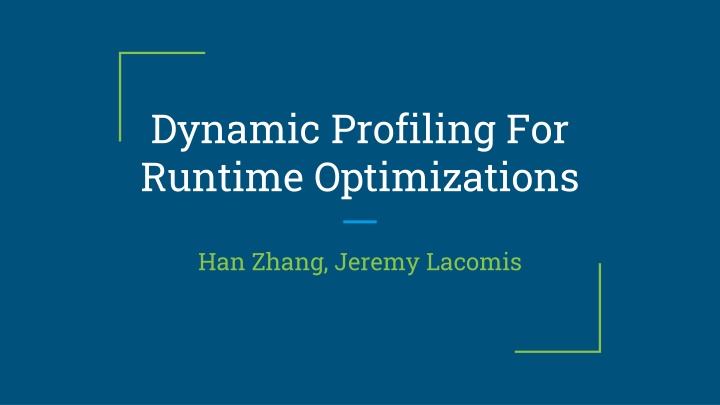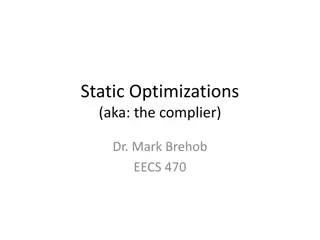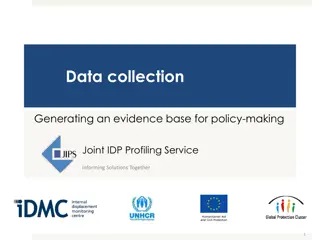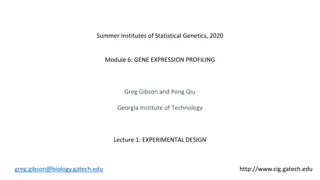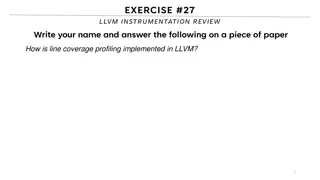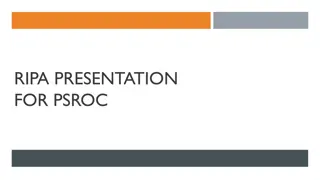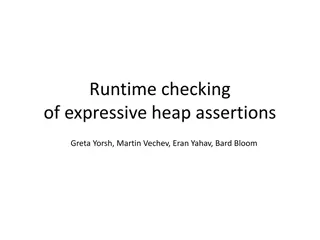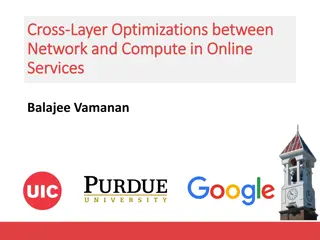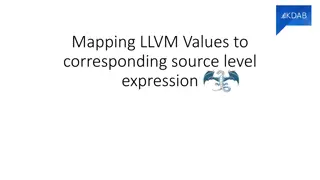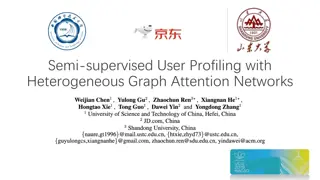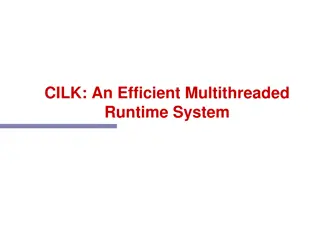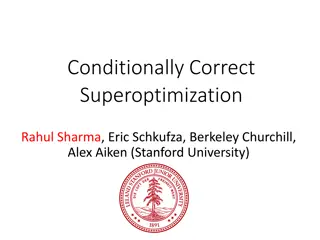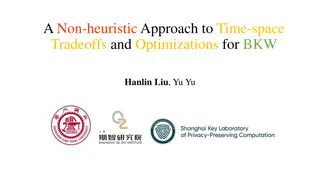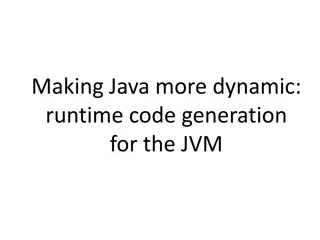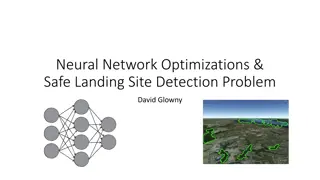Dynamic Profiling for Runtime Optimizations
Dynamic profiling techniques for identifying hot loops, probable code execution paths, and duplications that can lead to code bloat. Learn about on-stack replacement and traditional vs optimistic hybrid analysis approaches for optimizing runtime performance."
Download Presentation

Please find below an Image/Link to download the presentation.
The content on the website is provided AS IS for your information and personal use only. It may not be sold, licensed, or shared on other websites without obtaining consent from the author.If you encounter any issues during the download, it is possible that the publisher has removed the file from their server.
You are allowed to download the files provided on this website for personal or commercial use, subject to the condition that they are used lawfully. All files are the property of their respective owners.
The content on the website is provided AS IS for your information and personal use only. It may not be sold, licensed, or shared on other websites without obtaining consent from the author.
E N D
Presentation Transcript
Dynamic Profiling For Runtime Optimizations Han Zhang, Jeremy Lacomis
Dynamic Profiling Collect information at runtime Likely invariants Hot loops Probability of execution This profiling information can be used to inform optimizations
Code Duplication Duplicating code can enable optimizations:
Code Duplication Can lead to code bloat Prohibitive to compute the best possible duplications at runtime Profiling information can inform which duplicate blocks are most likely to lead to bigger improvements.
On-Stack Replacement At runtime, transfer control to a different version of a function using variables already on the stack:
On-Stack Replacement Transfer to an optimized version of the function (one or more times) Transfer to a deoptimized version of a function (e.g., speculative assumptions enabled optimizations but no longer hold) Select best implementation based on the current data All assumptions aren t always known statically Profiling can generate likely invariants and identify expensive functions
Traditional Hybrid Analysis Use static analyses to inform dynamic analysis E.g., FastTrack race detection
Optimistic Hybrid Analysis Use profiling to collect likely invariants, informing static analyses
